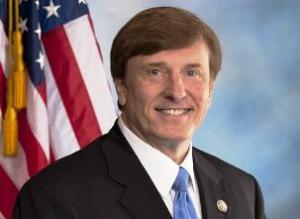A new designed law proponents say is designed to help babies will actually hurt drug-using pregnant women, advocates say. It's bad science and bad policy, they say, and they will keep fighting it.
A Louisiana congressman is threatening to try to undo DC decriminalization law after a House hearing today.
First it said Kentucky could have its hemp seed for research purposes. Then it said it couldn't. Kentucky is getting fed up with the DEA, and is now going to federal court over hemp seed imports.
An initiative in the District of Columbia seeks to legalize marijuana this November, and StoptheDrugWar.org has joined the team.
An Birmingham, Alabama, man becomes the 15th person to die in US domestic drug law enforcement operations so far this year after a deputy shot him as he drove off from an interrupted drug deal. Police said he tried to run them over.
A Texas police officer has died after being shot Friday in a pre-dawn SWAT drug raid. The last time that happened, a grand jury refused to indict the shooter.
Strange goings on in Phoenix, some Philly narcs get their hands slapped, another prison guard gets in trouble, and a couple of crooked cops head for prison.
Another poll has marijuana legalization at the tipping point, a Colorado bill to form credit co-ops for pot businesses passes, an Illinois bill to let kids with epilepsy use medical marijuana is moving, a New York naloxone bill passes, Pittsburgh needle exchanges get some breathing room, and more.
House Republicans were "concerned" about DC's decrim at a hearing this morning, an Oregon poll shows a majority for legalization, harm reduction measures move in three states, an Oklahoma medical marijuana initiative is about to start signature-gathering, and more.
Elderly senators grumble about new-fangled rules allowing legal marijuana businesses to use the financial system, there are more legalization polls, an Oklahoma US Senate candidate is talking marijuana reform, there is medical marijuana initiative news, Minnesota passes asset forfeiture reform and the governor signs it, and more.
The DC marijuana legalization initiative picks up some welcomed support, there's a legal challenge to Washington state's ability to collect marijuana taxes, a Republican US senator talks drug reform and takes some jabs at Obama, fentanyl-laced heroin in killing people in Philadelphia.
The NFL is about to adopt a more sensible marijuana policy, the DEA will unblock imported hemp seeds so Kentucky can do some research, Minnesota legislators try to reach a compromise on medical marijuana, the rate of prescription overdose deaths is up, and more.
When -- despite the objections of medical groups, reproductive health advocates, and even the drug czar's office -- Tennessee Gov. Bill Haslam (R) signed into law Senate Bill 1391 late last month, the Volunteer State became the first in the nation to pass a law criminalizing pregnancy outcomes. Other states, such as Alabama and South Carolina, have used fetal harm laws to charge drug-using pregnant women, but Tennessee is the first to explicitly criminalize drug use during pregnancy.
Passed in the midst of rising concern over prescription drug and heroin abuse and aimed, its proponents said, at protecting babies, the law allows women to be criminally charged with an "assaultive offense for the illegal use of a narcotic drug while pregnant, if her child is born addicted to or harmed by the narcotic drug or for criminal homicide if her child dies as a result of her illegal use of a narcotic drug taken while pregnant."
Felony assault can earn you up to 15 years in prison in Tennessee. And while some prosecutors have said they will only file misdemeanor charges, that's not written into the law.
Proponents cited recent reports that the number of babies being born addicted to drugs is on the rise. Such infants are diagnosed as having Neonatal Abstinence Syndrome, or withdrawal symptoms after being exposed to opiates in the womb.
"Over the past decade, we have seen a nearly ten-fold rise in the incidence of babies born with NAS in Tennessee," the state Department of Health reported. Infants with NAS stay in the hospital longer than other babies and they may have serious medical and social problems."
But the state Health Department notwithstanding, experts in the field say that NAS doesn't actually have long-term effects, it's not accurate to call newborn infants "addicted," and that misrepresenting matters by vilifying pregnant women isn't helpful. In fact, more than 40 of them said so in an open letter last month.
More generally, leading medical groups, including the American Medical Association, the American Nurses Association, the American Academy of Pediatrics, and the American Public Health Association reject the prosecution and punishment of pregnant women who use drugs. The groups mentioned above and many others said so in this 2011 document.
A coalition of medical, public health, women's rights, and social justice groups worked to oppose the bill as it made its way through the legislature, and then to convince Gov. Haslam to kill it. A petition with over 11,000 signatures urging him to veto the bill went to his office late last month. More than two dozen organizations devoted to ensuring families have access to health care likewise urged a veto, as did the American Association of Pediatrics, the National Perinatal Association, and International Doctors for Healthier Drug Policy.
Even acting drug czar Michael Botticelli raised a warning flag.
"Under the Obama administration, we've really tried to reframe drug policy not as a crime but as a public health-related issue, and that our response on the national level is that we not criminalize addiction," he said during a visit to Nashville as the governor pondered. "We want to make sure our response and our national strategy is based on the fact that addiction is a disease. What's important is that we create environments where we're really diminishing the stigma and the barriers, particularly for pregnant women, who often have a lot of shame and guilt about their substance abuse disorders."
But none of that mattered. On April 29, Haslam signed the bill into law.
"In reviewing this bill, I have had extensive conversations with experts including substance abuse, mental health, health and law enforcement officials," Haslam said in a statement. "The intent of this bill is to give law enforcement and district attorneys a tool to address illicit drug use among pregnant women through treatment programs."
"Today, the Tennessee governor has made it a crime to carry a pregnancy to term if you struggle with addiction or substance abuse," Alexa Kolbi-Molinas, staff attorney with the ACLU Reproductive Freedom Project, said in a statement in response to the signing. "This deeply misguided law will force those women who need health care the most into the shadows. Pregnant women with addictions need better access to health care, not jail time."
The statewide coalition Healthy and Free Tennessee also lambasted the new law.
"We are very sorry to see that Governor Haslam let an opportunity to do the right thing slip through his fingers," said Rebecca Terrell, the group's chairwoman."The experts could not have been clearer: this law is bad for babies and bad for Tennessee."
"This law says that women are to be held criminally accountable for the outcomes of their pregnancies," said Farah Diaz-Tello, a staff attorney with National Advocates for Pregnant Women, which was part of the coalition fighting the new law. "It essentially creates a system of separate and unequal rights. Drug ingestion is not a crime in Tennessee, just possession, and now, only pregnant women are criminalized for ingesting. They can be surveilled and punished by the state in ways different from other people. The law also treats fertilized eggs or fetuses as if they were people independent of the pregnant woman," she told the Chronicle.

Gov. Bill Haslam (tn.gov)
"It's the wrong response to the problem of addiction," said
Diaz-Tello. "It's a health problem that is not responsive to threats and punishment. What kind of society do we want to be? Do we want to punish the people most in need of help and support? These are women largely living in poverty, women of color, who are already made vulnerable by our social policies, and now we hold them solely responsible without looking at society and what else is going on leading to pregnancy among addicted people and this horrible punitive response."
Even framing the issue as "pregnant women taking drugs" is somewhat misleading, said Diaz-Tello.
"We often make the mistake of thinking of people using drugs during pregnancy as pregnant women who became addicted to drugs when it should be the other way around," she said. "The reasons for addiction are complex and often gender-based. Women who have experienced violence and trauma are often self-medicating, and there is a lot of unresolved pain and trauma out there. And half the pregnancies in our country are unintended, which disproportionately affects women on the margins. It's not like someone wakes up pregnant one day and decides they want to do drugs."
The law will not operate in a vacuum. Tennessee is one of those states that has refused to expand Medicaid and has rejected the Affordable Care Act. It is more difficult for poor women there to get access to health care services, including drug treatment, but now it will be easier to prosecute them.
"This is definitely for the most part going to affect poor, marginalized, predominantly rural women," said Cherisse Scott, founder of SisterReach, a Memphis-based group working for reproductive justice for women and girls in the city and the Mid-South area. "That's because of the many barriers they face. Many rural areas just don't have the facilities to offer help to these women."
Scott also bemoaned the criminalization of pregnant women who use drugs under the law, a process of stigmatization and punishment only made more severe for women lacking resources.
"Low income women, women of color, already have issues navigating the court system, and many don't have any kind of support system," she said. "When their children are taken, they don't have the resources to get them back. And the other piece of this is that jails aren't hospitals or treatment centers. They don't offer women an opportunity to be properly rehabilitated from drug use."
And then there's the aftermath of a criminal conviction.
"If you look at this through the lens of racial and reproductive justice, how does a woman with this on her record bounce back, how does she get a job? With a criminal background, she will be further locked out," said Scott. "These are the kinds of barriers and issues that will ultimately hurt the mothers of Tennessee. We can't support legislation that uses criminalization as a means of rehabilitating people," she told the Chronicle.
"Our lawmakers had good intentions, but they didn't think it through," said Scott. "They seem to be very ready to separate mothers and children as a way of helping, and we don't see it like that, especially when there are rehab programs that keep mother and children together."
The new law is also generating alarm with advocates for people who use opioid maintenance therapy to deal with opiate addictions. Methadone and buprenorphine maintenance are the gold standard for treating pregnant women addicted to narcotics. While state health officials have said they interpret the law to mean that a pregnant woman on methadone maintenance would not be in violation of it, there is no language in it that explicitly says that.
"I asked the governor to veto the bill because that exclusion wasn't made," said Mark Parrino, president of the American Association for the Treatment of Opioid Dependence. "The real question is whether some representative for the attorney general's office or a DA or child protection services interprets it that way. This is a potential problem. When you're talking about child protection, it's not unusual for a judge or child protection worker to say to a pregnant mom 'You can't be on methadone.' I hope this law will not be used as a method of forcing maintained patients out of care."
While babies born to opiate-addicted women can suffer from Neonatal Abstinence Syndrome, or withdrawals, they can be treated for that, mainly by slowly tapering the dose of opiates. But, Parrino said, not all pregnant mothers on methadone maintenance have babies with the syndrome, and consequences for fetuses can be serious if mothers are forced off opiates during their pregnancies.
"What happens to a fetus if you force mom to end her medication?" he asked. "In the first trimester, a sudden decrease can be harmful to the fetus. There could be spontaneous abortion. It's in the literature. That's why laws like this raise concerns in people who have some knowledge about how pregnant women are treated."
Parrino, too, saw race a playing a role, but in an unexpected way.
"What I am seeing for the first time in 30 years is a real interest by elected officials, many US senators and governors and legislators, who can't wrap their heads around why white teens and 20-somethings from middle class families in the suburbs and rural areas are shooting heroin," Parrino observed. "Those elected officials are right to be worried. This legislation in Tennessee is a result of those dynamics."
While the law may have been passed with the best motives, "the problem is the criminalization aspect," said Parrino. "Even if it can be explained as having a reasonably good intention of getting pregnant women not to use drugs and go to treatment, you are unwittingly subverting that goal by saying that being in methadone maintenance might be seen as not complete treatment. That uncertainty is creating anxiety."
The new law is set to go into effect on July 1, but efforts are already underway to block it and, barring that, to mitigate its effects.
"We're still trying to figure out the best plan of action," Scott said. "We want to figure out the best way to support women who are going to be victims of this policy. At the grass roots level, that means education, awareness, getting the word out through rehab centers to let the women know this is coming. Then we have to figure out what is the legal strategy to try to change this law. We're working on it."
"We're thinking about a legal challenge, especially on constitutional grounds," said Diaz-Tello. "We have worked with public defenders in Tennessee and other states on challenging similar laws on constitutional grounds. There's also the possibility of an affirmative suit to get the law enjoined. It would be ideal to stop this law before anyone gets arrested under it."
Barring the successful blocking of the law, drug-addicted pregnant women in Tennessee will face the tender mercies of the criminal justice system. But not all of them, of course.
"Race and class plays a role as always," said Scott. "Poor mothers go to jail; mothers with access to more resources may not be penalized at all. Women who have access to health care and can afford private prenatal care and treatment will get treatment; women who have no alternative but public aid or a public health clinic will be disproportionately impacted as always. Nothing's changed as far as race and class."
back to top
Even as the House held a first hearing on the District of Columbia's recently passed decriminalization law, at least one Republican congressman is threatening to file legislation to undo it. Rep. John Fleming (R-LA) told CQ Roll Call he plans to introduce a congressional resolution to overturn it.

Rep. John Fleming (R-LA). Maybe he should worry about Shreveport. (house.gov)
The hearing came in the House Oversight and Government Reform Committee's Subcommittee on Government Operations, chaired by Rep. John Mica (R-FL). Mica said his views on the issue were "evolving" and that he might hold additional hearings on the law.
Because Washington, DC, is a federal district, Congress has powers it can exercise over its governance. Under the law, Congress has 60 days to block the law from taking effect. That would require the approval of the House, the Senate, and the president.
Still, DC supporters and marijuana reform supporters are fighting back in an increasingly heated war of words.
DC Delegate Eleanor Holmes Norton (D) scolded the subcommittee, saying it was inappropriate for the House to hold a hearing on only the District's law when "18 states have decriminalized marijuana, 21 states have legalized medical marijuana and two states have legalized marijuana."
"It's outrageous that Congress is trying to sabotage DC's success in ending marijuana arrests," said Grant Smith, deputy director of national affairs with the Drug Policy Alliance. "Congress should follow the lead of lawmakers in DC and reform federal marijuana laws."
The decrim bill (Council Bill 20-409) passed the council on a 10-1 vote and was signed by Mayor Vincent Gray prior to its transmission to Congress. It eliminates the threat of arrest for possessing marijuana and ensures that people are no longer saddled with life-long convictions that make it difficult to obtain employment and housing.
The legislation also prohibits law enforcement from using the smell of marijuana as grounds for stopping and searching a person. Instead of arresting people, the bill would impose a $25 civil fine for possession as well as forfeiture of the marijuana and any paraphernalia used to consume or carry it. It is widely viewed as a model for other jurisdictions looking to reduce racial disparities in the criminal justice system.
"It is inexcusable that congressional time and resources are being spent to criticize local officials for eliminating racist and ineffective marijuana laws when large swaths of the American public support an end to marijuana prohibition," added Smith. "Members of Congress like Rep. John Fleming who say they are earnest about advancing public health and safety should take a hard look at the devastation wrought by marijuana prohibition."
If some Republican congressmembers are unhappy with DC's decrim bill, they are going to be in an absolute snit if and when District voters decide to outright legalize marijuana. The DC Cannabis Campaign legalization ballot initiative is in the signature-gathering phase right now and should easily qualify for the November ballot.
back to top
After being misled by the DEA about whether it would release imported heed seed destined for the state's hemp research projects, the state of Kentucky is now suing the federal anti-drug agency, Agriculture Commissioner James Comer told The Huffington Post Wednesday.

hemp field at sunrise (votehemp.org)
This comes just one day after
Comer said the DEA told him the seeds would be released.
"I hated to do that, but we've been misled and it's obviously a stall tactic," Comer told HuffPost. "We have farmers who wanna grow it. We have processors who wanna process it. We have researchers who wanna research it. We bought and paid for the seeds," Comer said. "Here in Kentucky there's a desperate need to find an alternative to tobacco."
And the clock is ticking, with Mother Nature paying no attention to bureaucratic power plays. Hemp crops need to be in the ground this month for this year's season.
Research on hemp is now legal for state agriculture departments and universities in states that have passed laws allowing for it. A groundbreaking amendment allowing for the research was approved as part of the omnibus farm bill signed into law earlier this year. And Kentucky ordered 250 pounds of Italian hemp seed to do research this year.
But the DEA now says the state ag department must apply for a permit to import the seeds because they are a Schedule I controlled substance. That's a change of tune from the anti-drug agency.
"We were told yesterday in multiple phone calls that we wouldn't have to do this Schedule I import permit," senior Kentucky ag official Holly Harris VonLuehrte told HuffPost. She noted that agreeing to the DEA demand would be an implicit acceptance of the DEA's position that hemp is in fact a Schedule I drug.
"Industrial hemp is not a Schedule I controlled substance. We're not going to execute a document that violates federal and state law," she said.
The seeds are currently stuck in a US Customs warehouse in Louisville.
Rep. Earl Blumenauer (D-OR), one of the sponsors of the hemp amendment to the farm bill, ridiculed the DEA's position.
"I think I have a copy of the Congressional Record lying around my office that shows that Congress just debated this issue and voted overwhelmingly to allow research institutions to grow and study industrial hemp," Blumenauer told HuffPost. "I'd send it over to the DEA, but I'm worried they would classify it as rolling papers and seize it. With every move, the DEA is showing that they are incredibly out of touch with mainstream America. We need serious self-evaluation and shakeup over there if they ever want to be taken seriously."
But the DEA may have managed to knock Kentucky's hemp research schedule back by a year.
back to top
 It's nothing less than electrifying when a chapter of a global saga is being written in your backyard. It is undeniably your turn to stand up, organize and make your mark.
It's nothing less than electrifying when a chapter of a global saga is being written in your backyard. It is undeniably your turn to stand up, organize and make your mark.
The folks behind DC Cannabis Campaign (DCMJ) have advanced Voter Initiative 71, which will legalize possession and home growing of marijuana—hopefully paving the way for the DC Council to enact sane, sensible "tax and regulate" measures like the ones currently being implemented in Colorado and Washington.
It will add to the momentum of battles now underway in Oregon and Alaska.
It will advance the credibility of the anti-prohibitionists who want to set our country free and make this a national issue that no one can ignore any longer.
Help Us Legalize Marijuana in DC
As a DC-based organization, this initiative is close to our hearts. As an organizational steering committee member we have committed to delivering 5,000 of the signatures needed to get I-71 on the ballot and then to work for its passage. We need donors and volunteers to deliver on our pledge and spread the good fight in our corner of the world.
There are a few ways you should help now:
DONATE: Visit our donation page to make a generous donation supporting the DC Cannabis Campaign. Please select the option to make a non-deductible donation supporting our lobbying work, and indicate in the notes field that it is for the DC campaign, Initiative 71. If you can afford it, please return to the donation page to make a second gift (tax-deductible or non-deductible) supporting our ongoing work that makes this outreach possible, or indicate in the notes field how much of your gift is meant for the campaign vs. our organization.
VOLUNTEER: If you live in the DC-area, please contact StoptheDrugWar.org and become part of the campaign's volunteer force. We're going to join DCMJ out on the streets, inform our fellow DCers about the campaign, gather signatures and help Initiative 71 pass. Please include "DCMJ volunteer" in the subject line. We'll be in touch soon thereafter.
This is an exciting time. We're not a voice in the wilderness anymore. Unprecedented gains are within our reach—even in the nation's capital.
Will you join us?
Sincerely,

David Borden, Executive Director
StoptheDrugWar.org
Washington, DC
http://stopthedrugwar.org
back to top
A Jefferson County sheriff's deputy shot and killed a man who attempted to drive off in his vehicle after deputies broke up a drug deal in progress Friday night. The as yet unidentified 21-year-old Birmingham man becomes the 15th person to die in US domestic drug law enforcement operations so far this year.
[Editor's Note: The man remains unidentified as of May 14.]
According to
Al.com, citing Jefferson County Chief Deputy Randy Christian, when deputies came across a drug deal in progress near the Walmart on Parkway East, one of the suspects "tried to run the deputy over with a car."
The deputy then shot the man in self-defense, Christian said. He was pronounced dead at the hospital.
A substance believed to be heroin was recovered at the scene.
"The drug business always seems to end in tragedy or prison," Christian said. "There is no third option I'm aware of. I wish our young people could grasp that and just stay away from it."
[Ed: We wish that officials including Deputy Christian could grasp, or would allow themselves to grasp, why the drug business ends in tragedy or incarceration as often as it does. It's because of prohibition. -DB]
back to top
A Killeen police officer died Sunday, two days after being shot during a pre-dawn SWAT drug raid. Detective Charles "Chuck" Dinwiddie becomes the 16th person to die in US domestic drug law enforcement operations so far this year.
According to
KDHN News, members of the Killeen Police Department SWAT team had begun breaking through a window as they served a drug search warrant at 5:30 a.m Friday, when someone inside opened fire on the intruders, wounding four officers.
Dinwiddie was shot in the face and spent two days in critical condition before dying of his wounds Sunday afternoon.
The three other officers wounded all survived. Police said two of them were saved by their protective gear, while the third was shot in the thigh.
Police identified the shooter as apartment resident Marvin Louis Guy, 49. He faces three counts of attempted murder. Authorities are likely to try to upgrade one of those to capital murder.
But in the last case of a Texas police officer killed breaking into someone's home in a SWAT drug raid, the grand jury refused to indict the shooter for the death. That was just four months ago.
back to top
Strange goings on in Phoenix, some Philly narcs get their hands slapped, another prison guard gets in trouble, and a couple of crooked cops head for prison. Let's get to it:
In Phoenix,
a Maricopa County sheriff's deputy shot and killed himself last Thursday after a series of standoffs with law enforcement. When deputies then searched the home of Deputy Ramon "Charlie"
Amendariz, they found not only various illegal drugs, but also license plates, driver's licenses and various ID cards and passports.
Armendariz had worked in various areas of the sheriff's office, including the human smuggling unit, and killed himself after deputies arrived at his home with an arrest warrant related to missing evidence.
In Philadelphia, one Philly narcotics officer implicated in the Tainted Justice scandal was fired Monday and three others have been suspended and will be transferred from the dope squad. Officer Jeffrey Cujdik, who was canned, and the others have been on desk duty for five years, since a 2009 series in The Philadelphia Daily News reported that they had fabricated evidence, given gifts to informants, and robbed bodegas of cash and merchandise. Federal authorities declined to file criminal charges in March 2013 after investigating for four years, and the department then began an internal investigation. That investigation resulted in eight findings of misconduct against the squad, and Monday's firing and suspensions are the result.
In Greenville, Alabama, a state prison guard was arrested Tuesday on charges he was trying to sneak drugs into the prison. Correction Officer David Brooks went down after meeting with an undercover detective, and a subsequent search of his home turned up meth, synthetic marijuana, and other drugs worth an estimated $55,000. The 15-year veteran who was working at the Easterling Prison in Clio is charged with conspiring to traffic meth. The state prison guard is now in a county jail.
In East St. Louis, Illinois, a former East St. Louis police detective was sentenced last Friday to five years in federal prison on cocaine-related charges. Orlando Ward, 42, was one of seven men wrapped up in a cocaine distribution conspiracy and had been willing to take bribes to provide information and police resources to the conspiracy. He had pleaded guilty in November to one count of conspiracy to distribute cocaine and one count of possession with intent.
In Jackson, Mississippi, a former Jackson police officer was sentenced Tuesday to 25 months in prison for offering another Jackson police officer $10,000 to make outstanding drug charges go away for an acquaintance of his. Former Patrol Sergeant Tony Davis had pleaded guilty to a single count of bribery in December.
back to top
Another poll has marijuana legalization at the tipping point, a Colorado bill to form credit co-ops for pot businesses passes, an Illinois bill to let kids with epilepsy use medical marijuana is moving, a New York naloxone bill passes, Pittsburgh needle exchanges get some breathing room, and more. Let's get to it:

Pittsburgh needle exchanges get some breathing room. (wikimedia.org)
Fairleigh Dickinson Poll Has 50% Support for Legalization. A new poll from Fairleigh Dickinson University has support for marijuana legalization at 50% nationwide. By a ratio of 2-to-1, Democrats (63%) favor legalization more than Republicans (32%), with independents (58%) more closely aligned with Democrats. Young people also are far more supportive of legalization, with 65% of the millennial generation and over half of Gen Xers (56%) in favor, compared with fewer than half (48%) of baby boomers and around a third (36%) of the World War II generation. "Democrats see getting high as a lifestyle choice, whereas Republicans are more likely to understand it through the prism of morality and social deviance," political science professor and poll director Krista Jenkins told the Associated Press. "However, the age differences we're seeing suggest that legal [marijuana] smoking in the future is more a question of 'when' rather than 'if.'"
Colorado Legislature Passes Marijuana Credit Co-op Bill. Legislation to create a state-backed credit co-op to provide banking services to Colorado's all-cash marijuana industry is on its way to the governor's desk. House Bill 1398, after a battle over whether or not to allow hemp businesses to take part, passed the full House on a 33-31 final vote after lawmakers there ended a standoff between various factions and the Capitol's two chambers by signing off on Senate changes to the bill, including allowing the inclusion of hemp businesses.
Medical Marijuana
Illinois Bill to Allow Children With Epilepsy to Use Medical Marijuana Wins Committee Vote. A measure that would allow children with epilepsy to use medical marijuana is moving. The House Rules Committee approved Senate Bill 2636 Wednesday on a 15-0 vote. The legislation would add epilepsy to the list of treatable diseases in the state's medical cannabis pilot program. It would also allow children with epilepsy to use medical cannabis. The bill has already passed the Senate and now heads for a House floor vote.
Drugged Driving
Michigan Drugged Driving Bills to Drop Roadside Saliva Tests. A provision pending in a pair of bills in the Michigan legislature that would let police give roadside saliva tests to drivers suspected of being under the influence of drugs will be removed from the legislation today, according to a cosponsor of the bill. Critics including researchers said the tests are inaccurate and could lead to inappropriate arrests of medical marijuana patients. Republican state Rep. Mike Callton said he plans to introduce an amendment removing the saliva testing provision at a House Judiciary Committee hearing Thursday. The bills are House Bill 5384 and House Bill 5385.
Drug Testing
Florida Governor Tries Again to Drug Test All Welfare Recipients. Gov. Rick Scott (R) is at it again. Weeks after the Supreme Court refused to hear his argument for why all state employees should have to pee in cups, Scott has filed a new brief in appellate court asking to re-argue his right to drug-test all welfare recipients in Florida. The plan was originally halted by court order in October 2011 while the ACLU challenged it, and the US District Court threw out the rule in December 2013 based on the arguments of a Navy veteran who said it violated his right against unreasonable search and seizure. But now Scott is back in appeals court, arguing in the new brief that there is a "demonstrated problem with drug use" among welfare recipients. Except there isn't: More than 4,000 people were tested while the program was in place, and a grand total of 108 failed. That's less than 3%.
Prescription Opioids
Massachusetts Medical Society Warns Don't Forget Pain Patients in Battle Against Prescription Drug Abuse. Policymakers "need to balance the needs of legitimate patients with pain, against the dangers to the public of opiates being in circulation," the Massachusetts Medical Society said in a statement delivered to the state's Senate Special Committee on Drug Abuse and Treatment Options Tuesday. "It is critical that we not forget the needs of our patients in pain to comprehensive medical care that effectively helps them to have the best quality of life that their disease or diagnosis will allow," the doctors' group emphasized.
Law Enforcement
Detroit Mass Drug Sweeps Continue. Authorities are conducting a narcotics blitz and warrant sweep Thursday afternoon on the city's west side as part of the eighth and latest high-profile police raid. They're part of an ongoing police offensive called Operation Restore Order. In March, two crime-ridden neighborhoods were flooded as part of Operation Restore Order March Madness, which targeted problematic areas in the Ninth and Sixth precincts, on the city's east and west sides, respectively. The first Operation Restore Order raid came in November, when officers flooded the high-crime Colony Arms Apartments on Jefferson. Since then, there have been raids of the Martin Luther King Apartments, a 1.2 square-mile area of the west side known for heavy drug dealing, and warrant sweeps in the Fifth, Sixth, Eighth and Ninth Precincts. It's not clear yet whether order has actually been restored.
Harm Reduction
New York Bill to Expand Overdose Reversal Drug Access to Friends, Family Members Passes Legislature. State lawmakers have passed a bill expanding access to the drug naloxone (Narcan), which can reverse an overdose of opioids such as heroin and morphine. Assembly Bill 8637 would allow health care professionals and pharmacies to distribute Narcan, without a prescription, to at-risk people and those who know them. It was unclear late Wednesday whether Gov. Andrew Cuomo intends to sign the bill into law.
Pittsburgh Needle Exchanges Get Some Breathing Room. The Allegheny County Board of Health unanimously passed a motion that will lift location restrictions for needle exchange programs within the city of Pittsburgh. The previous regulation banned needle exchanges within 1,500 feet of schools, daycare centers and drug treatment centers. But that proved far too restrictive for the densely populated city of Pittsburgh, where needle exchanges would have few places to operate. The motion passed today would lift that restriction, though city council would still have to approve new needle exchange locations. The location restriction remains the same in the rest of the county.
International
US Will Cut Off Anti-Drug Assistance to Ecuador. The United States will end decades of anti-drug trafficking assistance to Ecuador this month, pulling its staff from the INL office in the South American nation, a top official said Wednesday. "I am quite prepared to acknowledge right now the INL section, which has been in Ecuador now for more than 30 years, is also going to close up shop," Ambassador William Brownfield, Assistant Secretary of State for International Narcotics and Law Enforcement Affairs (INL), told a congressional hearing. Brownfield said the move was a reflection of the level of cooperation the United States has right now from Ecuador.
South Australian Politicians Compete to See Who Can Be Toughest on Drugs. It seems so last century, but "tough on drugs" is the stance of the day in South Australia. Opposition politicians are seeking a three-strikes policy under which repeat drug offenders would not be offered diversion to counseling, while state Attorney General John Rau is renewing his own push to crack down on serious drug offenders, including measures to strip them of their assets regardless of whether they were proceeds of crime. Legislation is pending.
Chief Minister Says Isle of Man Should Consider Marijuana Decriminalization. The Chief Minister of the Isle of Man has said the island should consider decriminalizing cannabis. Allan Bell's comments followed a presentation on the island given by former Westminster drug policy advisor David Nutt, whom the Labor government fired after he criticized its move to increase penalties. Bell praised Nutt's "fresh perspective," saying "there is a consensus developing internationally now that the old-style war on drugs has failed miserably and there needs to be a new approach." Bell cited marijuana legalization in the US and Uruguay as examples of nations taking a positive approach to drug policy.
back to top
House Republicans were "concerned" about DC's decrim at a hearing this morning, an Oregon poll shows a majority for legalization, harm reduction measures move in three states, an Oklahoma medical marijuana initiative is about to start signature-gathering, and more. Let's get to it:

Overdose prevention measures move in three states. (wikipedia.org)
House Panels Debates DC Decriminalization Law. Republican members of a House Oversight subcommittee sharply questioned the District's move to decriminalize the possession of small amounts of marijuana Friday but did not indicate they would move to overturn the legislation passed by District lawmakers this spring. Rep. John L. Mica (R-FL), the panel's chair, said he was "not here to negate District law" but doubted whether the city's law would address its stated goal of reducing racial disparities in marijuana arrests. The hearing came amid warnings that it could be a first step toward Congress overturning the measure. Del. Eleanor Holmes Norton (D) told the committee it was inappropriate for the House to hold a hearing on only the District's laws when "18 states have decriminalized marijuana, 21 states have legalized medical marijuana and two states have legalized marijuana. She told The Washington Post in an interview she doubted Republicans would move directly to overturn the law. Click on the link to get more flavor of the hearing.
Oregon Poll Has 54% for Marijuana Legalization. In what is moderately cheery news for Oregon marijuana initiative organizers, a new OPB has support for legalization at 54%. Two different initiative campaigns are in the signature-gathering phase, so voters could have the chance to vote twice to legalize it. This is only moderately cheery news because initiative experts like to see support at 60% or higher at the beginning of a campaign, and because the poll's +/- 4.9% margin of error could mean support is really only at 50%. Still, the trend seems to be in the right direction. The last poll from OPB that asked about legalization a year and a half ago only had support at 43%.
New York City Pot Arrests Drop, But Only Moderately. Minor marijuana arrests in New York City have plunged in recent years amid questions about police tactics. But new statistics show the arrests dropped more modestly in the first three months of a new mayoral administration that has pledged to reduce them. Arrests for the lowest-level marijuana crime fell 34% in the first quarter of 2013 -- and 9% in the first quarter of this year, to roughly 7,000, according to state Division of Criminal Justice Services data obtained by The Associated Press. Both comparisons are to the same period in the previous years. Drug reform activists said this year's numbers show that problematic police practices continue despite new Mayor Bill DeBlasio's criticism of high marijuana arrest numbers.
Medical Marijuana
Oklahoma Initiative Will Start Signature Gathering May 18. The Oklahoma Compassionate Cannabis Campaign will begin signature-gathering for its medical marijuana initiative on May 18. The campaign needs 155,216 valid voter signatures to qualify for the November ballot.
Minnesota Medical Marijuana Study Bill Wins House Committee Vote. A bill that would fund a study on the therapeutic effects of marijuana was approved by the House Ways and Means Committee Thursday. Senate File 2470 was filed by Rep. Carly Melin (DFL-Hibbing) after her earlier, full-fledged medical marijuana bill, House File 1818 was blocked by law enforcement and the governor. It now goes to the House floor. Meanwhile, Senate File 1641, the companion to Melin's earlier bill, remains alive in the Senate.
Harm Reduction
California Overdose Antidote Bill Passes Assembly. A bill to expand access to the overdose reversal drug naloxone (Narcan) unanimously passed the Assembly Thursday. Assembly Bill 1535 would permit pharmacists to furnish the lifesaving drug to family members; people who may be in contact with a person at risk of an opiate overdose; or to the patient requesting it, pursuant to guidelines to be developed by the state's boards of pharmacy and medicine. It also ensures proper education and training for both the pharmacists and the consumers. The bill now moves to the Senate.
Louisiana Overdose Antidote Bill Wins Senate Committee Vote. A state Senate panel gave quick approval Wednesday to legislation that would allow first responders to provide a life-saving drug to those overdosing on heroin. House Bill 754 would give law enforcement officers, firefighters and emergency medical personnel the authority to administer a drug that reverses the effects of heroin during an overdose. The Health and Welfare Committee sent the measure to the Senate floor for debate.
Minnesota Legislature Approves Overdose Antidote, Good Samaritan Bill. Both the House and the Senate voted Wednesday to approve a measure allowing first responders, law enforcement and some nonmedical professionals to administer a drug that can counteract the effects of a heroin overdose and also provides immunity to users who call 911 in the event of an overdose. House File 2307 now awaits the signature of Gov. Mark Dayton (DFL).
Foreign Policy
GOP Bill Would Define Hezbollah as Global Drug Kingpin. Rep. Mark Meadows (R-NC) has introduced a bill aimed at weakening the Lebanese Shiite militant group Hezbollah. "The Hezbollah International Financing Prevention Act (House Resolution 4411) broadens financial sanctions against the group, targets its propaganda television station al-Manar, and urges the president to define Hezbollah as a 'global drug kingpin,' giving the administration another weapon to cripple Hezbollah's operations. The bill also codifies into law the policy of the United States to prevent Hezbollah's global logistics and financial network from operating," Meadows wrote in a press release. The measure has been referred to the House Foreign Affairs and Financial Services committees.
back to top
Elderly senators grumble about new-fangled rules allowing legal marijuana businesses to use the financial system, there are more legalization polls, an Oklahoma US Senate candidate is talking marijuana reform, there is medical marijuana initiative news, Minnesota passes asset forfeiture reform and the governor signs it, and more. Let's get to it:

Oklahoma state Sen. Constance Johnson (D) is running for the US Senate and talking marijuana reform. (oksenate.gov)
Feinstein, Grassley Try to Thwart Normalized Marijuana Banking. Sens. Dianne Feinstein (D-CA) and Charles Grassley (R-IA) aren't happy with the Obama administration's efforts to find a way to let marijuana businesses in states where it is legal have access to the financial system. They sent a letter to the Financial Crimes Enforcement Network (FinCEN) complaining about the guidance it was offering banks "on providing financial services for drug traffickers," in Grassley's words. FinCen responded here, but that wasn't good enough for the crusty drug warriors. Now, Grassley has responded to the response, maintaining that "unless federal law is changed, selling marijuana, laundering marijuana proceeds, and aiding and abetting those activities all remain illegal" and that "FinCEN's guidance to financial institutions is absolutely contrary to the mission of the agency." Click on the title link to read the rest.
Connecticut Poll Has 52% for Legalization. A Quinnipiac University poll released Monday has support for marijuana legalization at 52% among Connecticut voters, who also said overwhelmingly that alcohol was a bigger health problem than pot. A whopping 80% of voters under 30 supported legalization. Voters also supported having medical marijuana dispensaries in their towns by a margin of more than two-to-one. The state legalized medical marijuana in 2012.
New Mexico Poll Has Only 40% for Legalization, But… an Albuquerque Journal flash poll had support for marijuana legalization at 40%, with 47% opposed. The poll only asked only if marijuana should be legalized, however, without specifying what legalization might look like. A poll done last year for the Drug Policy Alliance got 53% support for legalization when it asked whether marijuana should be legalized for adults so that it could be taxed and regulated, like alcohol, with restrictions on where it could be bought and consumed.
Colorado Marijuana Tax Revenues Top $20 Million So Far This Year. The state Department of Revenue released figures last Thursday showing that revenues from adult and medical marijuana taxes, licenses, and fees were at nearly $22 million for the first three months of the year. The state reported that March adult marijuana sales hit $19 million, up $5 million over February, while medical marijuana sales were about $34 million.
Push Underway to Decriminalize Toledo. A petition drive is underway for a municipal initiative to decriminalize small-time marijuana possession in the Northwest Ohio city. The initiative is sponsored by the Toledo NORML chapter, which says it has already collected 2,800 signatures. It needs 3,800 valid signatures to qualify for the November ballot.
Oklahoma's Leading Democratic US Senate Candidate Pushes Marijuana Law Reform. State Sen. Constance Johnson (D-Oklahoma City), the leading candidate for the state's Democratic Party US Senate nomination, is the author of repeated failed medical marijuana bills in the state legislature and is currently working to get a legalization initiative on the November ballot. A Democrat winning a Senate seat in Oklahoma is a long shot, but Johnson says she hopes marijuana will drive voters to the polls. "This whole issue, to me, is not about smoking marijuana. It's about criminalizing it. That's where these young people stand to be hurt the most. They get that," said Johnson. "Unless we change who's voting, things will stay the same," she said. "It's time to send a message -- not only to the policymakers... but to the people -- that we can change this." You can do that by putting marijuana on the ballot, she said.
Medical Marijuana
Minnesota Governor Says He Will Sign House Bill. Gov. Mark Dayton (DFL) sent a letter Friday to lawmakers saying he could sign the medical marijuana bill passed by the House. Senate File 2470 was filed by Rep. Carly Melin (DFL-Hibbing) after her earlier, full-fledged medical marijuana bill, House File 1818 was blocked by law enforcement and the governor. A stronger bill, Senate File 1641, has passed the Senate, but Dayton didn't say he could sign that one. Now, the Senate must accept the House version or try to reach a compromise in conference committee.
Ohio Medical Marijuana Initiative Campaign in Midst of Signature-Gathering. The Ohio Rights Group is leading a signature-gathering campaign to put a medical marijuana (and hemp) initiative on the November ballot. They need to collect 385,000 valid voter signatures by July 5. They had 50,000 signatures on March 1 and haven't reported any more recent figures, but the campaign has been ramping up this month.
Arkansas Attorney General Again Rejects Medical Marijuana Initiative Language. Attorney General Dustin McDaniel has once again rejected the proposed wording for a medical marijuana initiative from Arkansans for Medical Cannabis. This is about the sixth time he has rejected proposals from the group. Meanwhile, another initiative, this one from Arkansans for Compassionate Care, is in the signature-gathering phase. The Arkansas Medical Cannabis Act needs some 65,000 valid signatures to qualify for the November ballot.
Asset Forfeiture
Minnesota Governor Signs Asset Forfeiture Reform Bill. Last week, Gov. Mark Dayton (DFL) signed into law Senate File 874, which forces authorities to actually convict someone of a criminal offense or get a guilty plea before seizing his property. The bill also forces the government to prove the property was the instrument or proceeds of crime. Previously, it had been up to the victim of the seizure to prove it was not connected to crimes.
Drug Testing
Federal Judge Rejects City of Key West Prospective Employee Drug Testing. A US district court judge has ruled that Key West's policy of drug-testing prospective employees is illegal. The ACLU of Florida had brought suit on behalf of a woman who was offered a job as the city's recycling coordinator, but had the job offer rescinded after she refused a drug test. The city failed to demonstrate "a special need or important government interest which justifies the policy's Fourth Amendment intrusion," Judge James Lawrence King held. And while the city argued that the tests should be allowed because job applicants were forewarned, King wasn't buying it. The law doesn't allow a government entity "to violate a person's rights under the Fourth Amendment so long as prior notice of the impending violation is given," he ruled.
International
Heroin Maintenance Coming to Norway? The Norwegian city of Bergen has proposed undertaking a program of heroin maintenance, or heroin-assisted treatment (HAT). Norway has long been skeptical of opioid maintenance therapies, allowing the use of methadone only in 1998. Dr. Ola Josendal, director of addiction medicine at Haukeland University Hospital proposed HAT clinical trials in December, but the national health minister rejected them. Now, however, the Labor Party, the largest bloc in parliament, is in favor, so it could happen. Stay tuned.
Bermuda Cannabis Reform Collaborative Says Decriminalize It. A panel tasked with examining Bermuda's marijuana laws issued its report last Friday, and it calling for the decriminalization of small-time pot possession, allowing people to grow a small number of plants, and allowing the medical use of the plant on the island. Marijuana prohibition is not working, the report said.
Mexico's Plan to Demobilize Anti-Cartel Vigilantes Hits Snags. Anti-cartel vigilantes in the state of Michoacan were supposed to begin laying down their arms and integrating into a new rural police force Saturday, but The Washington Post reports that the process isn't exactly going smoothly. The vigilante groups formed more than a year ago with an apparent wink and nod from the government and managed to drive the Knights Templar cartel out of parts of the state, but now, the government fears they may get out of control. Click the link for a full report.
(This article was published by StoptheDrugWar.org's lobbying arm, the Drug Reform Coordination Network, which also shares the cost of maintaining this web site. DRCNet Foundation takes no positions on candidates for public office, in compliance with section 501(c)(3) of the Internal Revenue Code, and does not pay for reporting that could be interpreted or misinterpreted as doing so.)
back to top
The DC marijuana legalization initiative picks up some welcomed support, there's a legal challenge to Washington state's ability to collect marijuana taxes, a Republican US senator talks drug reform and takes some jabs at Obama, fentanyl-laced heroin is killing people in Philadelphia, and more. Let's get to it:
Marijuana Policy Two Drug Reform Groups Get Behind DC Legalization Initiative. The Drug Policy Alliance has hired Dr. Malik Burnett as a full-time organizer in Washington, DC, to build support for Initiative 71, the DC marijuana legalization initiative. But his work in DC will also go beyond marijuana policy to include broader drug and social justice reform issues. Meanwhile, StoptheDrugWar.org (that's us) has endorsed the initiative and is seeking to deliver 5,000 of the 25,000 signatures needed. You can sign up to donate to our initiative effort here or sign up to volunteer here. Or click on the endorsement link for more information. Click the title link for more info about the DPA move.
Washington State Lawsuit Challenges State's Ability to Collect Marijuana Taxes. A Washington dispensary operator has filed a lawsuit attempting to stop the state from collecting taxes on marijuana sales. The operator, Martin Nickerson, is being prosecuted for the sale of medical marijuana he produced and argues that forcing him to pay taxes on his marijuana sales would violate his 5th Amendment right against self incrimination. He is represented by Douglas Hiatt, a Seattle marijuana and medical marijuana defense attorney and ardent foe of the I-502 legalization scheme. I-502's main proponent, Alison Holcomb, said she thinks the lawsuit has little chance of succeeding.
Ohio Supreme Court Forum to Discuss "Unintended Consequences" of Legalization Today. A discussion on "Marijuana Legalization and the Law of Unintended Consequences" moderated by state Supreme Court Justice Maureen O'Connor will take place today at 5:30pm at the Ohio Supreme Court in Columbus. Panelists are Colorado Deputy Atttorney General David Blake, Ohio State law professor and Sentencing Law and Policy blog author Douglas Berman, and Marijuana Policy Project director of federal policies Dan Riffle. Questions can be submitted via Twitter using hashtag #OhioFOTL.
Illinois Drug Policy Consortium to Discuss New Marijuana Policy Report Monday. The IDPC will have a panel discussing its new report on marijuana policy, Patchwork Policy: An evaluation of arrests and tickets in Illinois, next Monday, the day it is released. Click on the link for more info, including time and location details.
Medical Marijuana
Iowa Governor Likely to Sign Limited CBD Medical Marijuana Bill. Gov. Terry Brandstad (R) told a news conference Monday he has consulted with the governors of other states that have passed limited CBD medical marijuana bills and he thinks Iowa can move forward without "unintended consequences." He gave the legislature credit for crafting a very tight bill. "I think it's important that we respond to legitimate concerns from the public but we also have to protect against unforeseen consequences. I think the legislature in this case has tried to do that. My inclination at this point is to say that I'm inclined to think that it's likely that I will sign it," he said. The bill is Senate File 2360.
Drug Policy
Republican Senator Rob Portman Talks Drug Reform. Sen. Rob Portman (R-OH) is set to give a speech today at the American Enterprise Institute in Washington, DC, in which he will reportedly call for a reassessment of the decades long war on drugs. He will also reportedly criticize President Obama's plan to grant clemency to hundreds or thousands of convicted drug offenders, calling it a "band aid solution" that doesn't address deeper problems driving recidivism. He will also advocate for reauthorization of the Second Chance Act, which is aimed at reducing recidivism. Portman could have national ambitions in 2016.
Heroin
Fentanyl-Laced Heroin Killing People in Philly. At least 28 people in Philadelphia died from overdosing on fentany-laced heroin between March 3 and April 20, the Department of Behavioral Health and Intellectual Disability said Monday. The department is awaiting test results on seven more people. Fentanyl is a powerful narcotic many times more potent than heroin and is used to treat severe pain. An earlier wave of fentanyl-laced heroin killed 269 people in the city in 2006 and more than 2,000 people nationwide. The city health department has issued an alert.
International
Zetas Co-Founder Among Six Killed in Mexican Border Town Shootout. Gallando Mellado Cruz, one of the military deserters who helped found the gang of drug enforcers for the Gulf Cartel that morphed into the Zetas, was among six people killed in a gun battle between Mexican soldiers and cartel gunmen in the border town of Reynosa, Tamaulipas, just across the Rio Grande River from McAllen, Texas. Four other cartel gunmen and one soldier also died. Tamaulipas was the scene of bloody infighting between the Zetas and the Gulf cartel before calming down somewhat in 2012, but fighting has broken out again in recent weeks.
Canada's Sensible BC Announces Future Plans. The Canadian marijuana law reform group Sensible BC, which managed to gather more than 200,000 signatures for a provincial referendum to stop arrests for pot possession in BC, but still failed to make the ballot, has announced it will hold off on another referendum campaign until after the federal election in October 2015. Then, if Conservative Prime Minister Steven Harper wins reelection or if his replacement refuses to move forward on legalization, the group says it will launch a new referendum campaign in 2016. Until then, Sensible BC says it will focus on building its network and organization, keeping the issue alive in the media, and working on municipal elections coming in November.
back to top
The NFL is about to adopt a more sensible marijuana policy, the DEA will unblock imported hemp seeds so Kentucky can do some research, Minnesota legislators try to reach a compromise on medical marijuana, the rate of prescription overdose deaths is up, and more. Let's get to it:

People are dying of prescription drug overdoses at a rate three times that of a decade ago, says the CDC. (wikimedia.org
NORML PAC Endorses a Florida Congressional Candidate. NORML PAC, the campaign and lobbying arm of NORML, has endorsed Democrat Wes Neuman for Congress in Florida's 7th District. NORML says it believes "Wes will be a great champion for marijuana law reform in Washington, DC." Neumann says he will advocate for marijuana legalization.
NFL Reportedly Will Cut Marijuana Punishments. ESPN.com is reporting that when the NFL's new player drug policy is announced, punishments handed out for marijuana use will be reduced. ESPN also reported that the new drug policy will have a higher threshold for the amount of marijuana needed to trigger a positive test result. At least one current NFL player, Cleveland Browns receiver Josh Gordon, is facing a season-long suspension for running afoul of the league's marijuana policy. The NFL Players Association had suggested the league review its policy on marijuana and drug testing in general.
Medical Marijuana
Competing Minnesota Medical Marijuana Bills Head for Conference Committee. The state Senate voted Tuesday not to concur with the medical marijuana bill passed by the House, Senate File 2470, which is more narrowly tailored than the bill that has passed the Senate, Senate File 1641. That means a conference committee will have to try to hammer out an acceptable compromise.
Hemp
DEA Will Allow Hemp Seeds to Enter US for Kentucky Research Project. Kentucky Agriculture Commissioner James Comer said Tuesday that the DEA will quit trying to block the import of Italian hemp seeds to Kentucky for research purposes now permitted under the hemp amendment to the recently passed omnibus farm bill. The seeds are being held by US Customs at a warehouse in Louisville. Cromer was ready to go to federal court today, if the DEA had not yielded. The state Agriculture Department and several universities are planning hemp research projects this year, but they need to get the seeds in the ground. The clock is ticking.
Drug Treatment
Massachusetts Drug Treatment Bill Being Debated Today. A bill that would ease access to drug treatment, by forcing insurance companies to cover treatment that's provided without prior authorization from them, is being heard in the state Senate today. The measure is Senate Bill 2133, which was developed by a special legislative committee on drug addiction. There are 37 amendments to get through, too.
Prescription Drugs
Rate of Prescription Drug Overdoses Increased More Than Threefold in a Decade, CDC Report Says. A new report from the Centers for Disease Control (CDC), Health, United States, 2013, finds that the rate of prescription drug overdose deaths in the US increased from 1.9 per 100,000 residents 15 and over in 1999-2000 to 6.6 per 100,000 in 2009-2010.
International
No Safe Injection Rooms for Brighton after UK Government Warns Health Workers of Risk of Arrest. Last year, the Independent Drugs Commission for Brighton and Hove suggested that Brighton and Hove establish drug consumption rooms, saying they could take drug use off the streets and reduce overdose deaths. But those plans have now been shelved after the Home Office warned that health workers working in such facilities might be subject to arrest. The idea also got a mixed reception from the public.
In Face of New Zealand's Renewed Ban on Synthetic Weed, Auckland Deputy Mayor Says Decriminalize the Real Thing. Auckland Deputy Mayor Penny Hulse, who had previously opposed decriminalizing marijuana, has had a change of heart. She told an Auckland Council meeting Tuesday that it didn't make sense to regulate synthetic marijuana without considering safer alternatives -- like real marijuana.
Jamaica Marijuana Conference Coming Later This Month. The inaugural Jamaica Cannabis Conference is set for May 22-24 at the University of the West Indies campus in Mona. The theme is "Wake Up, Jamaica; Our Opportunities Are Slipping Away." Click on the link for more details.
Jamaican Musician and Poet Mutabaruka Tells Gambia to Legalize It. On a visit to Gambia to perform at the 11th annual International Roots Homecoming Festival, famed Jamaican poet and reggae singer Mutabaruka said Tuesday that Gambia should legalize marijuana and that "no youth should be in trouble over marijuana," citing the international movement toward marijuana legalization.
(This article was published by StoptheDrugWar.org's lobbying arm, the Drug Reform Coordination Network, which also shares the cost of maintaining this web site. DRCNet Foundation takes no positions on candidates for public office, in compliance with section 501(c)(3) of the Internal Revenue Code, and does not pay for reporting that could be interpreted or misinterpreted as doing so.)
back to top




 It's nothing less than electrifying when a chapter of a global saga is being written in your backyard. It is undeniably your turn to stand up, organize and make your mark.
It's nothing less than electrifying when a chapter of a global saga is being written in your backyard. It is undeniably your turn to stand up, organize and make your mark. 







